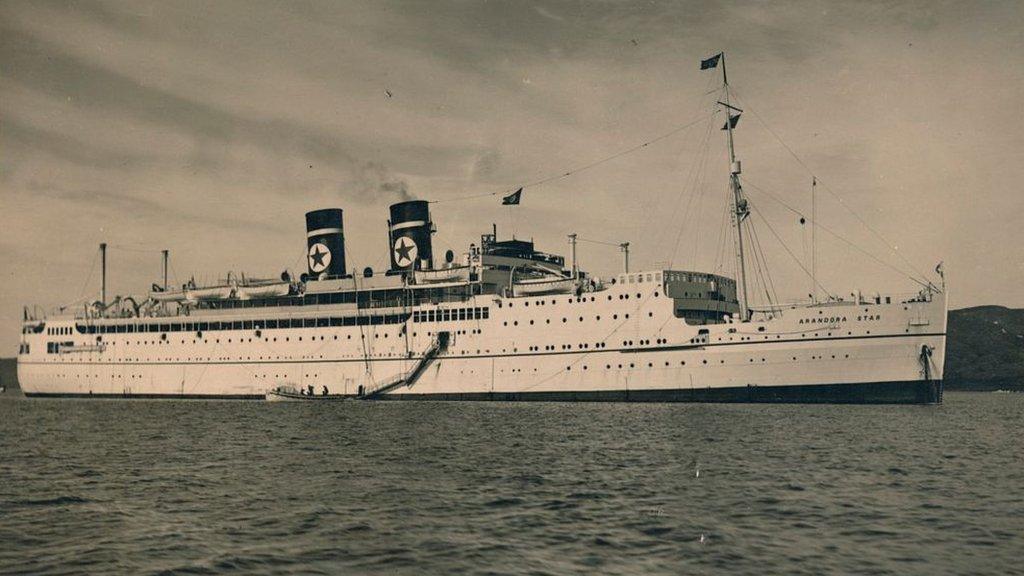Wartime grave marked by headstone after 83-year mystery
- Published
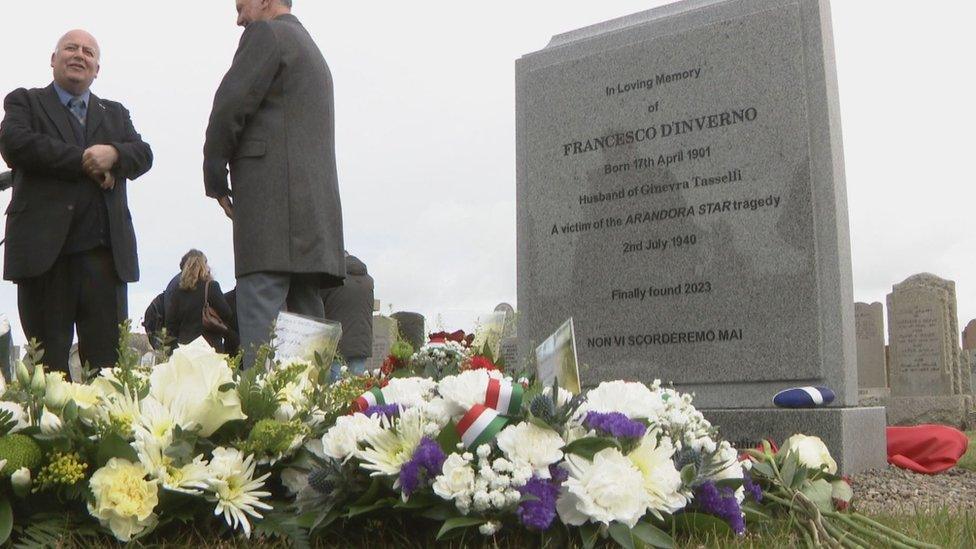
A headstone has finally been unveiled for a man who died in a wartime tragedy but was buried in an unmarked grave for more than 80 years.
Francesco D'Inverno perished in the sinking of the Arandora Star in 1940, one of hundreds of Italian internees to lose their lives.
His body was found near Lendalfoot, South Ayrshire, and he was laid to rest in Girvan's Doune Cemetery.
But he was only identified decades later following detailed research.
Last year BBC Scotland News told how members of his family had been tracked down in Kent.
They were aware he died in the tragedy but had no idea that his body had been found and buried, more than 400 miles away.
On Wednesday about 20 relatives took part in a ceremony - more than 83 years after his death.
Poignantly, it also coincided with the 123rd anniversary of his birth.

Charlotte Tasselli Arnold, from Southfleet, is the great-granddaughter of Ginevra Tasselli, who married Francesco after her first husband died.
Her great-grandmother had four children with her first husband but she was widowed young.
She then met and married Francesco, who became their stepfather.
But he tragically died in the sinking of the converted liner on 2 July 1940.
At the time it was being used to transport internees - and some German prisoners of war - to Canada when it was sunk by a torpedo from a U-boat, off the Irish coast.
Last year Ms Tasselli Arnold was contacted out of the blue by Ritchie Conaghan, of the Girvan and District Great War Project, who helped to identify Francesco's burial site.
She said her initial reaction was one of "disbelief".
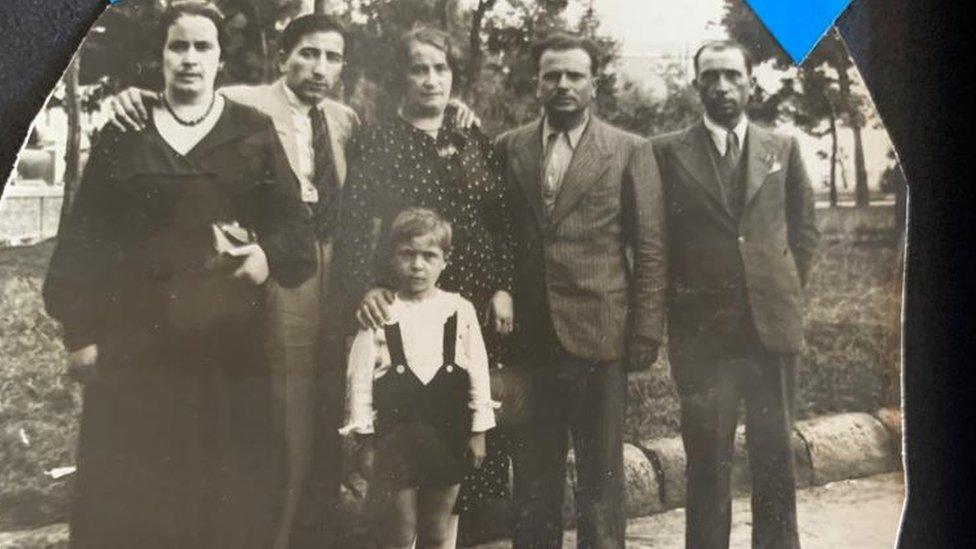
Francesco D'Inverno, second from right, married Ginevra Tasselli, centre, after her first husband died
Ms Tasselli Arnold added: "I was fortunate enough to be able to pass it on to the rest of the family, so it was lovely.
"The story has been passed down the generations but it is a story that ended him with him lost at sea and never recovered."
At the time she said his widow received a letter from the War Office that said he was on the Arandora Star but unfortunately it had sunk.
She said: "That is the story that has lived on up until now.
"Now we know that, actually, he was in fact found and had a Catholic burial, which is very important."
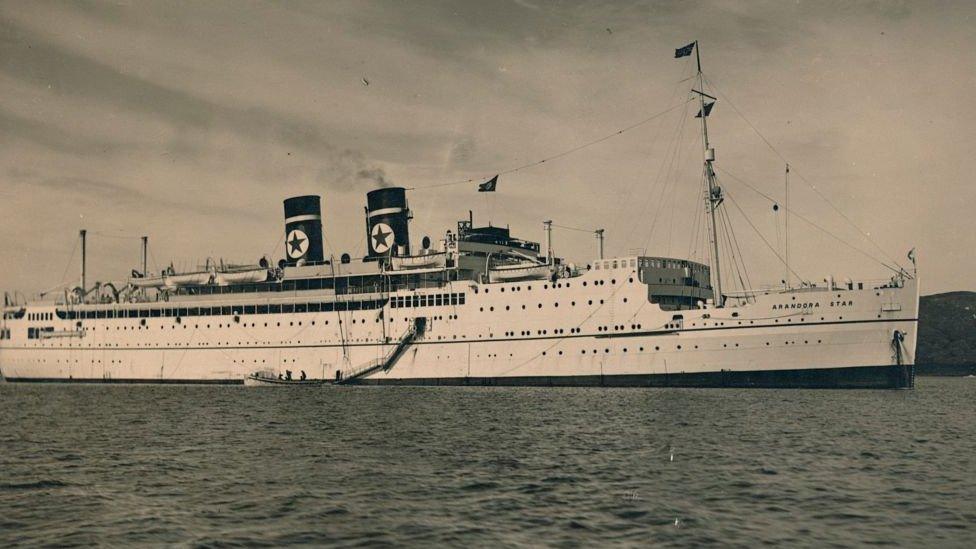
Francesco died in the sinking of the Arandora Star in 1940
She described the work of the project which identified him as "amazing".
Ms Tasselli Arnold said: "Unfortunately there were a lot of victims of the Arandora Star that never were recovered and never got that opportunity.
"We feel so thankful to everybody that helped find Francesco and gave us that opportunity to pay our respects today, especially on behalf of Ginevra.
"If she had known that he had been found she would have been the first one here."
Ms Tasselli Arnold had feared the story would be forgotten but, since the discovery, her children have shared it at school assemblies.
She added: "I hope this really does keep the story of the Arandora Star at the forefront of people's minds."
Related topics
- Published23 September 2023

- Published9 September 2023
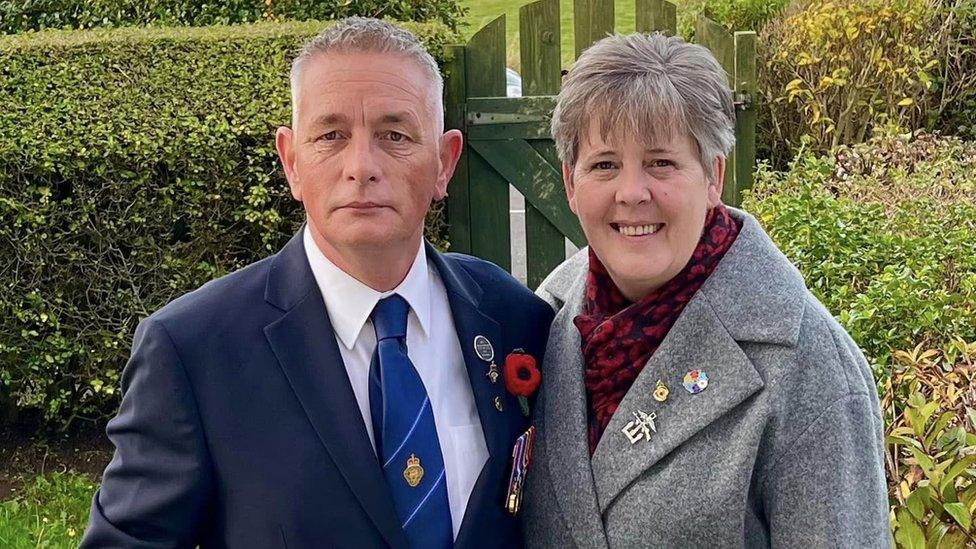
- Published2 July 2020
